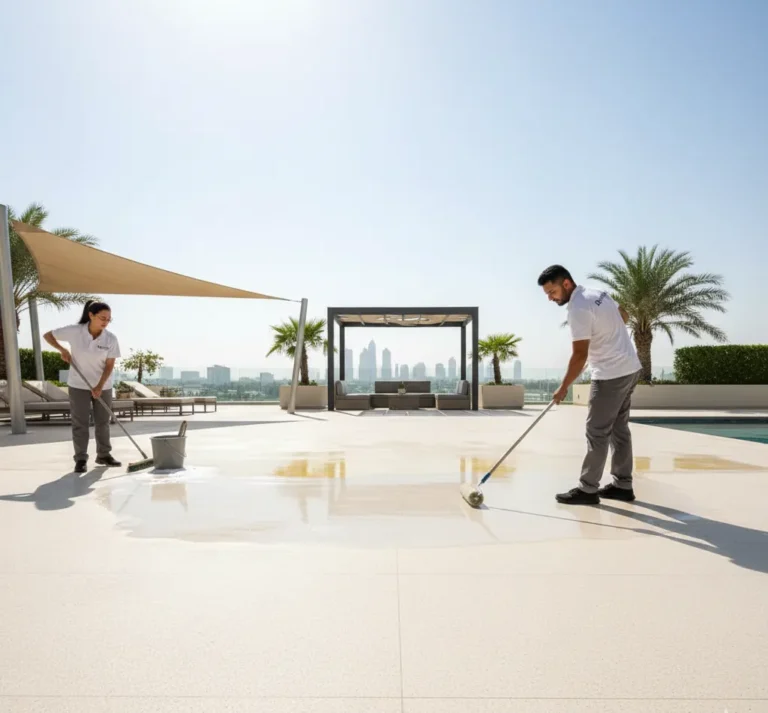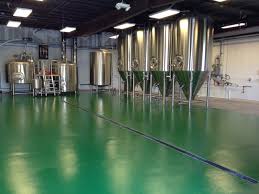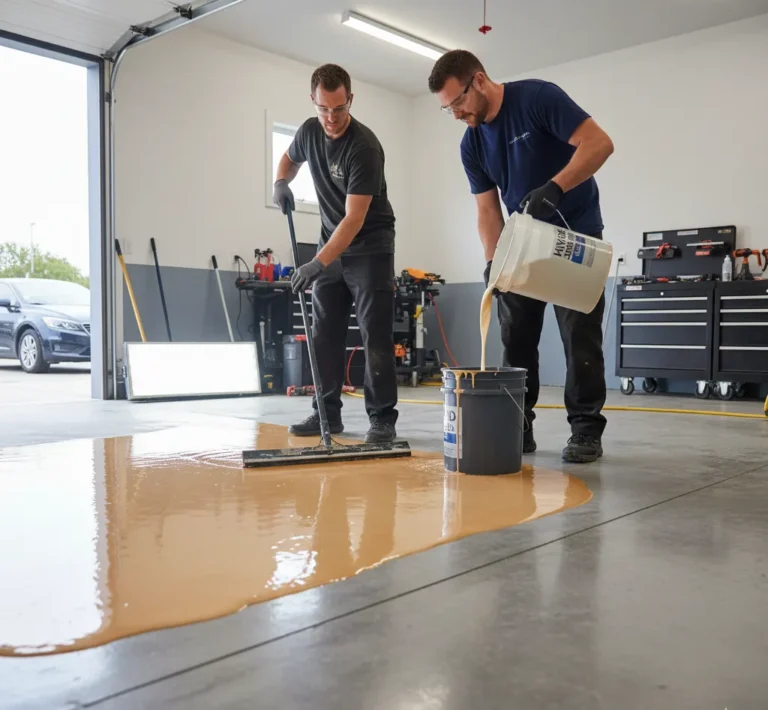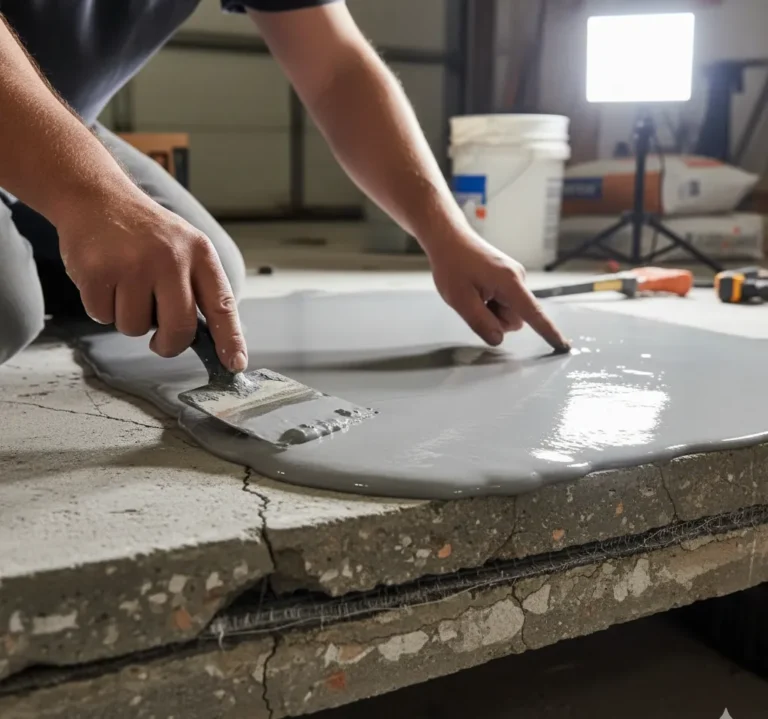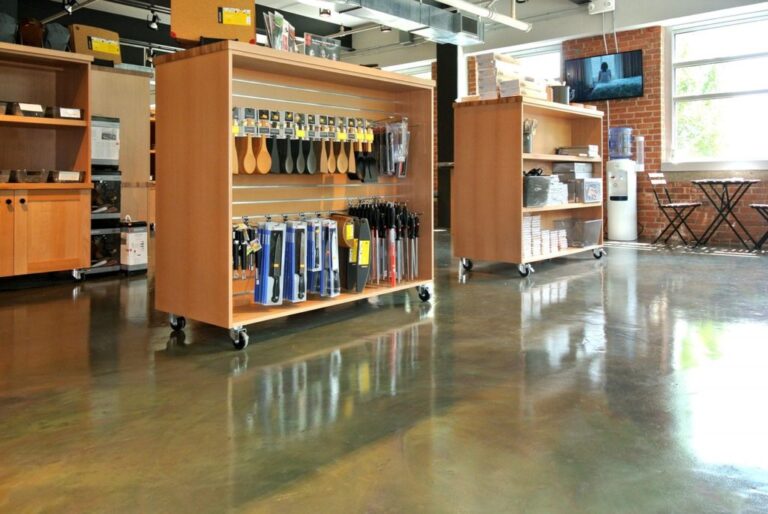Industrial Epoxy UAE High-Traffic Areas and Chemical-Resistant Flooring
In the bustling industrial landscape of the UAE, the demand for robust and reliable flooring solutions is ever-increasing. Industrial epoxy flooring stands out as a premier choice, especially in high-traffic areas where durability and chemical resistance are paramount. Resin coatings, particularly epoxy, offer a seamless blend of strength and versatility, making them indispensable in both industrial and commercial spaces.
Industrial Epoxy UAE High-Traffic Areas Chemical-Resistant Flooring Resin Coatings
Benefits of Industrial Epoxy Flooring
Industrial epoxy flooring is renowned for its exceptional durability and longevity. It provides a hard-wearing surface that can withstand the rigors of heavy machinery and constant foot traffic. This makes it an ideal choice for high-traffic areas in the UAE’s industrial sectors. Additionally, epoxy flooring is highly resistant to chemicals, ensuring that spills and leaks do not compromise the integrity of the floor.
- Durability : Withstands heavy loads and machinery.
- Chemical Resistance : Protects against spills and corrosive substances.
- Aesthetic Appeal : Offers a sleek, professional look.
Applications in High-Traffic Areas
Epoxy flooring is particularly beneficial in high-traffic areas such as warehouses, factories, and commercial spaces. Its ability to endure constant use without showing signs of wear makes it a cost-effective solution for businesses looking to maintain a pristine environment.
- Warehouses : Handles the weight of forklifts and pallets.
- Factories : Resists damage from equipment and tools.
- Commercial Spaces : Maintains appearance despite heavy footfall.
Chemical Resistance Properties
The chemical-resistant properties of epoxy flooring are crucial in environments where spills and leaks are common. This flooring can withstand exposure to a wide range of chemicals, including acids, solvents, and oils, without degrading.
- Acid Resistance : Protects against corrosive substances.
- Solvent Resistance : Maintains integrity in harsh conditions.
- Oil Resistance : Prevents staining and damage.
Types of Resin Coatings for Industrial Use
Epoxy Resin Systems
Epoxy resin systems are the backbone of industrial flooring solutions. They offer a versatile and customizable option for businesses looking to enhance their flooring’s performance. These systems can be tailored to meet specific needs, such as increased slip resistance or enhanced chemical resistance.
- Customizable : Tailored to specific industrial needs.
- Versatile : Suitable for various applications.
- Durable : Long-lasting and reliable.
Polyurethane Coatings
Polyurethane coatings are another popular choice for industrial flooring. They provide a flexible and resilient surface that can absorb impacts and resist abrasion. This makes them ideal for areas where heavy machinery is in use.
- Flexibility : Absorbs impacts and reduces damage.
- Abrasion Resistance : Withstands wear and tear.
- UV Stability : Maintains color and appearance.
Methyl Methacrylate (MMA) Flooring
MMA flooring is known for its rapid curing time, making it an excellent choice for projects with tight deadlines. It offers a durable and chemical-resistant surface that can be installed quickly and efficiently.
- Rapid Curing : Quick installation and minimal downtime.
- Chemical Resistance : Suitable for harsh environments.
- Durability : Long-lasting performance.
Durability and Longevity of Industrial Epoxy Flooring
Impact Resistance
Industrial epoxy flooring is designed to withstand significant impacts without cracking or chipping. This makes it ideal for environments where heavy objects are frequently moved or dropped.
- Robust : Handles heavy impacts with ease.
- Crack Resistant : Maintains integrity under stress.
- Long-Lasting : Reduces the need for frequent repairs.
Abrasion Resistance
The abrasion resistance of epoxy flooring ensures that it remains smooth and unblemished, even in high-traffic areas. This property is essential for maintaining a safe and efficient working environment.
- Smooth Surface : Reduces wear from constant use.
- Safety : Minimizes tripping hazards.
- Efficiency : Maintains operational flow.
Thermal Shock Resistance
Epoxy flooring can endure sudden temperature changes without losing its structural integrity. This is particularly important in industrial settings where extreme temperatures are common.
- Temperature Tolerance : Withstands extreme heat and cold.
- Structural Integrity : Remains stable under thermal stress.
- Versatility : Suitable for various industrial applications.
Installation Process for Industrial Epoxy Flooring
Surface Preparation
Proper surface preparation is crucial for the successful installation of epoxy flooring. This involves cleaning and repairing the substrate to ensure a strong bond between the epoxy and the floor.
- Cleaning : Removes dirt and debris.
- Repairing : Fixes cracks and imperfections.
- Priming : Prepares the surface for epoxy application.
Primer Application
Applying a primer is an essential step in the epoxy flooring installation process. It enhances adhesion and ensures a smooth and even finish.
- Adhesion : Improves bond between epoxy and substrate.
- Smooth Finish : Ensures even application.
- Durability : Increases the lifespan of the flooring.
Epoxy Coating Application
The final step in the installation process is the application of the epoxy coating. This involves spreading the epoxy evenly across the prepared surface and allowing it to cure.
- Even Application : Ensures a uniform finish.
- Curing : Allows the epoxy to harden and set.
- Final Touches : Adds any desired textures or designs.
Maintenance and Care for Epoxy Resin Flooring
Cleaning Procedures
Regular cleaning is essential to maintain the appearance and performance of epoxy flooring. This involves using appropriate cleaning agents and techniques to remove dirt and stains.
- Regular Sweeping : Prevents dirt buildup.
- Mild Detergents : Cleans without damaging the surface.
- Spot Cleaning : Addresses spills promptly.
Repair and Touch-ups
Over time, epoxy flooring may require minor repairs or touch-ups to address wear and tear. This involves filling in cracks or chips and reapplying the epoxy as needed.
- Crack Filling : Repairs minor damage.
- Reapplication : Restores worn areas.
- Professional Services : Ensures quality repairs.
Recoating Guidelines
Recoating epoxy flooring can extend its lifespan and enhance its appearance. This process involves applying a new layer of epoxy over the existing floor.
- Surface Preparation : Cleans and primes the floor.
- New Coating : Applies a fresh layer of epoxy.
- Curing : Allows the new coating to set.
What is the cost of industrial epoxy flooring in UAE?
The cost of industrial epoxy flooring in the UAE varies depending on factors such as the size of the area, the type of epoxy used, and the complexity of the installation. On average, prices can range from AED 100 to AED 300 per square meter. It’s advisable to get quotes from multiple suppliers to find the best deal.
How long does industrial epoxy flooring last?
Industrial epoxy flooring is known for its longevity, often lasting 10 to 20 years with proper maintenance. The lifespan can be extended with regular cleaning and timely repairs. Factors such as traffic levels and environmental conditions can also impact its durability.
Can epoxy flooring withstand heavy machinery?
Yes, epoxy flooring is designed to withstand the weight and movement of heavy machinery. Its impact resistance and durability make it suitable for industrial environments. Regular maintenance can further enhance its ability to handle heavy loads.
Environmental Benefits of Resin Coatings
Low VOC Emissions
Epoxy resin coatings are formulated to have low volatile organic compound (VOC) emissions, making them an environmentally friendly choice. This reduces air pollution and contributes to a healthier indoor environment.
- Eco-Friendly : Minimizes environmental impact.
- Healthier Air : Reduces indoor air pollution.
- Compliance : Meets environmental regulations.
Energy Efficiency
The reflective properties of epoxy flooring can enhance lighting efficiency, reducing the need for artificial lighting. This can lead to significant energy savings over time.
- Reflective Surface : Enhances natural lighting.
- Energy Savings : Reduces electricity consumption.
- Cost-Effective : Lowers utility bills.
Sustainable Materials
Many epoxy flooring systems incorporate sustainable materials, contributing to a reduced carbon footprint. This aligns with global efforts to promote sustainability in construction.
- Recycled Content : Utilizes eco-friendly materials.
- Sustainability : Supports green building initiatives.
- Environmental Responsibility : Reduces carbon footprint.
Safety Features of Industrial Epoxy Flooring
Slip Resistance
Epoxy flooring can be customized to include slip-resistant properties, enhancing safety in industrial environments. This is particularly important in areas prone to spills or moisture.
- Safety : Reduces the risk of slips and falls.
- Customization : Tailored to specific safety needs.
- Compliance : Meets safety standards.
Fire Retardant Properties
Some epoxy flooring systems are designed to be fire retardant, providing an additional layer of safety in industrial settings. This can help prevent the spread of fire and protect valuable assets.
- Fire Safety : Reduces fire risk.
- Asset Protection : Safeguards equipment and inventory.
- Peace of Mind : Enhances overall safety.
Anti-Static Options
Anti-static epoxy flooring is essential in environments where static electricity can pose a risk. This is particularly important in industries such as electronics manufacturing.
- Static Control : Prevents static buildup.
- Industry-Specific : Suitable for sensitive environments.
- Safety : Protects equipment and personnel.
Customization Options for Epoxy Resin Flooring
Color Choices
Epoxy flooring offers a wide range of color options, allowing businesses to customize their floors to match their branding or aesthetic preferences.
- Variety : Extensive color palette.
- Branding : Aligns with company colors.
- Aesthetic Appeal : Enhances visual impact.
Texture Variations
Different texture options are available to suit specific needs, such as increased slip resistance or a smoother finish.
- Slip Resistance : Enhances safety.
- Smooth Finish : Provides a sleek look.
- Customization : Tailored to specific requirements.
Logo and Design Incorporation
Businesses can incorporate logos and designs into their epoxy flooring, creating a unique and professional appearance.
- Branding : Displays company logos.
- Professional Look : Enhances business image.
- Customization : Offers unique design options.
Industrial Epoxy UAE Applications
Manufacturing Facilities
In manufacturing facilities, epoxy flooring provides a durable and chemical-resistant surface that can withstand the demands of production processes. Its seamless finish ensures easy cleaning and maintenance.
- Durability : Handles heavy machinery and equipment.
- Chemical Resistance : Protects against spills and leaks.
- Easy Maintenance : Simplifies cleaning procedures.
Warehouses and Distribution Centers
Epoxy flooring is ideal for warehouses and distribution centers, where high-traffic areas require a robust and reliable surface. Its impact resistance ensures longevity and reduces maintenance costs.
- Impact Resistance : Withstands heavy loads.
- Longevity : Reduces the need for frequent repairs.
- Cost-Effective : Lowers maintenance expenses.
Pharmaceutical Laboratories
In pharmaceutical laboratories, epoxy flooring offers a hygienic and chemical-resistant surface that meets strict industry standards. Its seamless finish prevents contamination and ensures a clean environment.
- Hygienic Surface : Resists bacteria and contaminants.
- Chemical Resistance : Protects against harsh substances.
- Industry Compliance : Meets regulatory standards.
Advancements in Resin Coating Technology
Self-Leveling Epoxy Systems
Self-leveling epoxy systems provide a smooth and even surface, ideal for environments where precision is crucial. These systems are easy to install and offer a professional finish.
- Smooth Finish : Ensures an even surface.
- Easy Installation : Simplifies the application process.
- Professional Look : Enhances aesthetic appeal.
Rapid-Cure Formulations
Rapid-cure epoxy formulations allow for quick installation and minimal downtime, making them ideal for projects with tight schedules. These formulations offer the same durability and performance as traditional epoxy systems.
- Quick Installation : Reduces project timelines.
- Minimal Downtime : Ensures business continuity.
- Durability : Maintains performance standards.
Nanotechnology in Epoxy Coatings
Nanotechnology is revolutionizing epoxy coatings by enhancing their properties, such as increased strength and chemical resistance. This technology offers new possibilities for industrial applications.
- Enhanced Properties : Improves strength and resistance.
- Innovative Solutions : Expands application possibilities.
- Future-Ready : Adapts to evolving industry needs.
Comparing Industrial Epoxy to Other Flooring Options
Epoxy vs. Tile
Epoxy flooring offers a seamless and non-porous surface, unlike tile, which can have grout lines that trap dirt and bacteria. Epoxy is also more durable and resistant to chemicals, making it a better choice for industrial environments.
- Seamless Surface : Eliminates grout lines.
- Durability : Outlasts tile in harsh conditions.
- Chemical Resistance : Protects against spills.
Epoxy vs. Vinyl
While vinyl flooring is cost-effective, epoxy offers superior durability and chemical resistance. Epoxy’s seamless finish also provides a more professional appearance, making it suitable for high-traffic areas.
- Durability : Withstands heavy use.
- Professional Look : Enhances business image.
- Chemical Resistance : Outperforms vinyl.
Epoxy vs. Bare Concrete
Bare concrete is prone to cracking and staining, whereas epoxy provides a protective layer that enhances durability and appearance. Epoxy also offers customization options that bare concrete cannot match.
- Protection : Prevents cracking and staining.
- Customization : Offers color and design options.
- Durability : Extends the lifespan of the floor.
Regulatory Compliance and Certifications
UAE Building Codes
Epoxy flooring installations must comply with UAE building codes to ensure safety and quality. These codes outline the standards for materials and installation practices.
- Compliance : Meets local regulations.
- Safety Standards : Ensures safe installations.
- Quality Assurance : Guarantees high standards.
International Standards
International standards, such as ISO certifications, provide guidelines for epoxy flooring systems. Adhering to these standards ensures that the flooring meets global quality benchmarks.
- Global Standards : Aligns with international guidelines.
- Quality Control : Ensures consistent performance.
- Industry Recognition : Demonstrates commitment to excellence.
Industry-Specific Certifications
Certain industries may require specific certifications for epoxy flooring, such as those related to hygiene or chemical resistance. These certifications ensure that the flooring meets the unique needs of the industry.
- Industry Compliance : Meets specific requirements.
- Specialized Solutions : Tailored to industry needs.
- Regulatory Adherence : Ensures legal compliance.
Future Trends in Industrial Epoxy and Resin Coatings
Smart Coatings
Smart coatings are an emerging trend in the epoxy industry, offering features such as self-cleaning and temperature regulation. These coatings provide innovative solutions for modern industrial challenges.
- Innovative Features : Offers advanced functionalities.
- Efficiency : Enhances operational performance.
- Future-Ready : Adapts to evolving needs.
Bio-Based Epoxy Resins
Bio-based epoxy resins are gaining popularity as a sustainable alternative to traditional epoxy systems. These resins reduce environmental impact and support green building initiatives.
- Sustainability : Reduces carbon footprint.
- Eco-Friendly : Supports environmental goals.
- Innovative Solutions : Expands application possibilities.
Self-Healing Epoxy Systems
Self-healing epoxy systems are designed to repair minor damage automatically, extending the lifespan of the flooring. This technology offers a cost-effective solution for maintaining industrial floors.
- Automatic Repair : Fixes minor damage.
- Longevity : Extends flooring lifespan.
- Cost-Effective : Reduces maintenance expenses.
In conclusion, industrial epoxy flooring in the UAE offers a robust and versatile solution for high-traffic areas and environments requiring chemical-resistant flooring. With advancements in resin coatings and a focus on sustainability, epoxy flooring continues to be a leading choice for industrial and commercial spaces.
FAQ’s
What are the disadvantages of epoxy flooring?
While epoxy flooring offers many benefits, it can be slippery when wet and may require additional slip-resistant coatings. It can also be challenging to repair if damaged. Proper installation and maintenance can mitigate these issues.
How often should industrial epoxy flooring be recoated?
Industrial epoxy flooring should be recoated every 5 to 10 years, depending on the level of traffic and wear. Regular inspections can help determine when recoating is necessary. Recoating can extend the lifespan and enhance the appearance of the flooring.
Can epoxy flooring be used outdoors in UAE’s climate?
Epoxy flooring can be used outdoors, but it may require UV-resistant formulations to prevent discoloration from the sun. It’s essential to choose the right type of epoxy for outdoor applications. Consulting with a professional can ensure the best results.
Is epoxy flooring suitable for food processing facilities?
Yes, epoxy flooring is suitable for food processing facilities due to its seamless and hygienic surface. It resists bacteria and is easy to clean, making it ideal for maintaining strict hygiene standards. Its chemical resistance also protects against spills and cleaning agents.
How does epoxy flooring compare to polished concrete?
Epoxy flooring offers superior chemical resistance and customization options compared to polished concrete. While polished concrete is durable, epoxy provides a seamless and non-porous surface that is easier to clean. Both options have their advantages, depending on the specific needs of the facility.
Can epoxy flooring be installed over existing floors?
Epoxy flooring can be installed over existing floors, provided the substrate is in good condition. Proper surface preparation is essential to ensure a strong bond and a smooth finish. Consulting with a professional installer can help determine the feasibility of this option.
